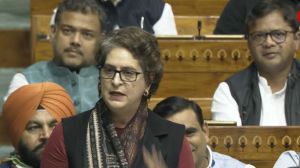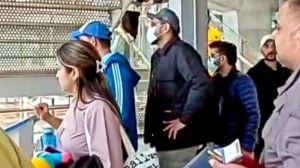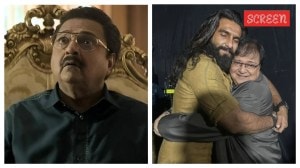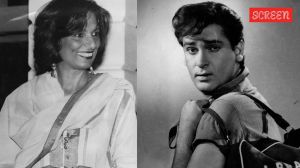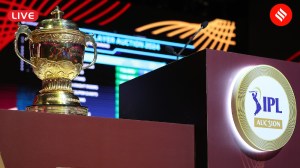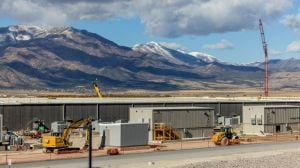Bush, Gore celebrate, stop short of claiming victory
OCT 4: White House rivals Al Gore and George W. Bush came, they saw, they debated ... to a draw? Dressed like the candidates from central ...

OCT 4: White House rivals Al Gore and George W. Bush came, they saw, they debated 8230; to a draw? Dressed like the candidates from central casting 8212; dark suits, white shirts, red ties 8212; the Democratic vice President and Republican Texas governor left what were ostensibly victory parties early Wednesday without declaring victory outright after their first televised debate.
At a Massachusetts Democrats debate party, Gore let wife Tipper do the talking, and she obliged, telling the excited young crowd that packed the downtown Park Plaza hotel8217;s Imperial Ballroom: quot;I think we know who won the debate tonight.quot;
The already pumped up crowd, which had moments earlier pulsed to the music of a live rhythm and blues band, roared its approval as candidate Gore beamed and pumped his fist in the Air.
Meanwhile, Gore8217;s rival, surrounded by signs proclaiming quot;Bush Wins,quot; told supporters at a rally in his honor: quot;Boy am I glad I came to Boston tonight. What we saw tonight in the debate is that there is a big difference of opinion.quot;
The Republican vowed to carry the November 7 election, just 34 days away, telling the excited crowd: quot;We are going to win because we got one of the best grassroots organizations of any campaign.quot;
The two men, whose aides had billed Tuesday8217;s verbal duel as potentially the most crucial 90-minutes of the months-long campaign, began it according to the unwritten rules: stride purposefully across the stage, share a handshake and a forced smile 8230; then come out swinging.
Bush and Gore, deadlocked in national opinion polls, strove mightily to highlight policy cleavages before an audience that included big political contributors, regular American citizens, and the candidates8217; wives and families.
But their true targets were the up to 75 million people that had been expected to tune in to watch the first of three presidential debates this month, especially the undecided and independent voters likely to determine what is shaping up to be the tightest White House contest in 40 years.
Far apart on many policy issues, the candidates stood meters feet apart on a stage set up in the Clark Athletic Center at the Boston branch University of Massachusetts under the watchful eye of moderator Jim Lehrer, a veteran public television reporter. Under the rules set by both sides, documents and written notes were banned, as were questions directly asked of each other.
They were also barred from moving from behind their matching wooden lecterns. In the minutes following the exchange, commentators and political figures quickly formed quot;spin alley,quot; crowding the aisles with famous and not-so-famous purveyors of instant analysis. Television networks queried their quot;average citizens,quot; and conducted snap polls.
A senior Gore adviser who asked not to be named consulted those speed surveys on his pager, saying: quot;CBS? 46-42 for Gore. CNN? 48-41 Gore. ABC? 42-39 Gore 8230; you see a pattern here?quot;
But for demonstrators outside the center the only clear pattern was the exclusion of third-party candidates, leading them to chant quot;open the debates.quot; Green Party hopeful Ralph Nader was not only excluded from the debate as a participant because of low scores in national opinion polls but even denied access to the event as an audience member, witnesses said.
- 01
- 02
- 03
- 04
- 05








